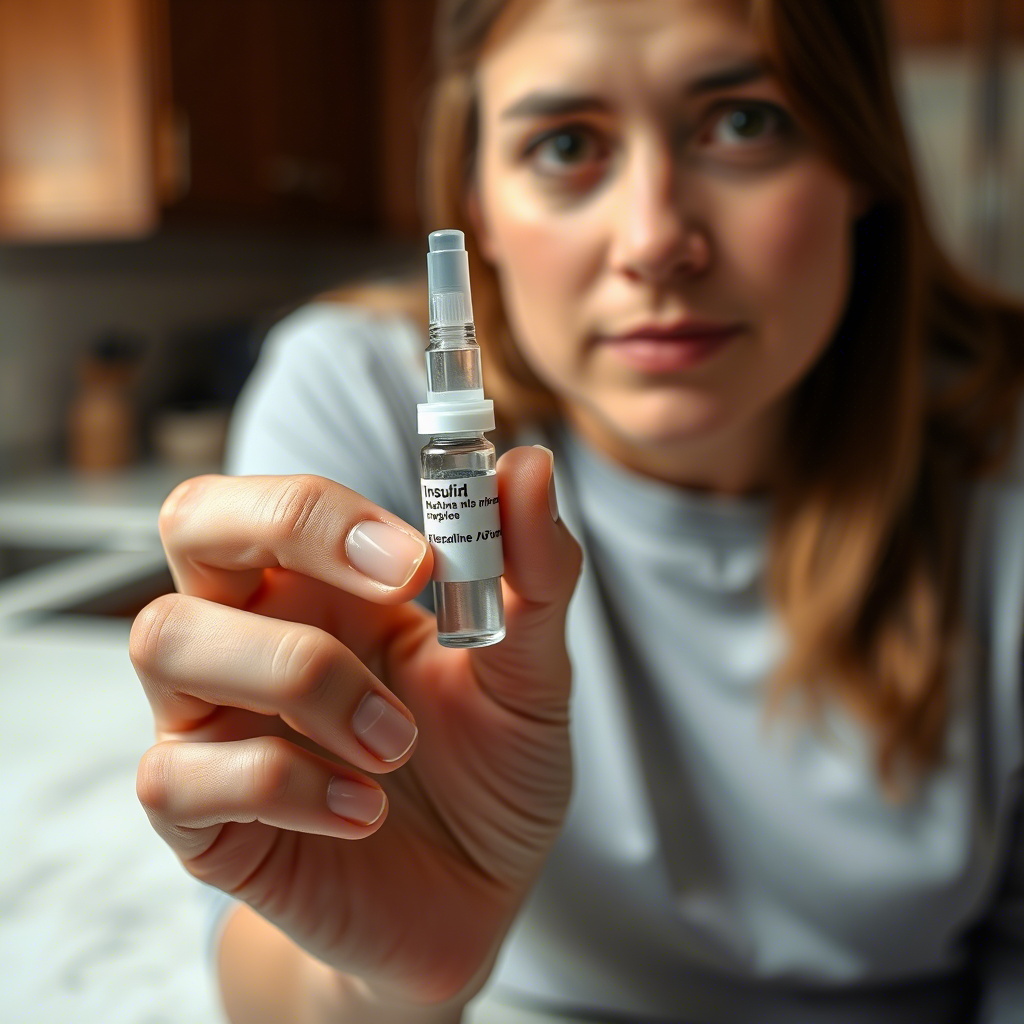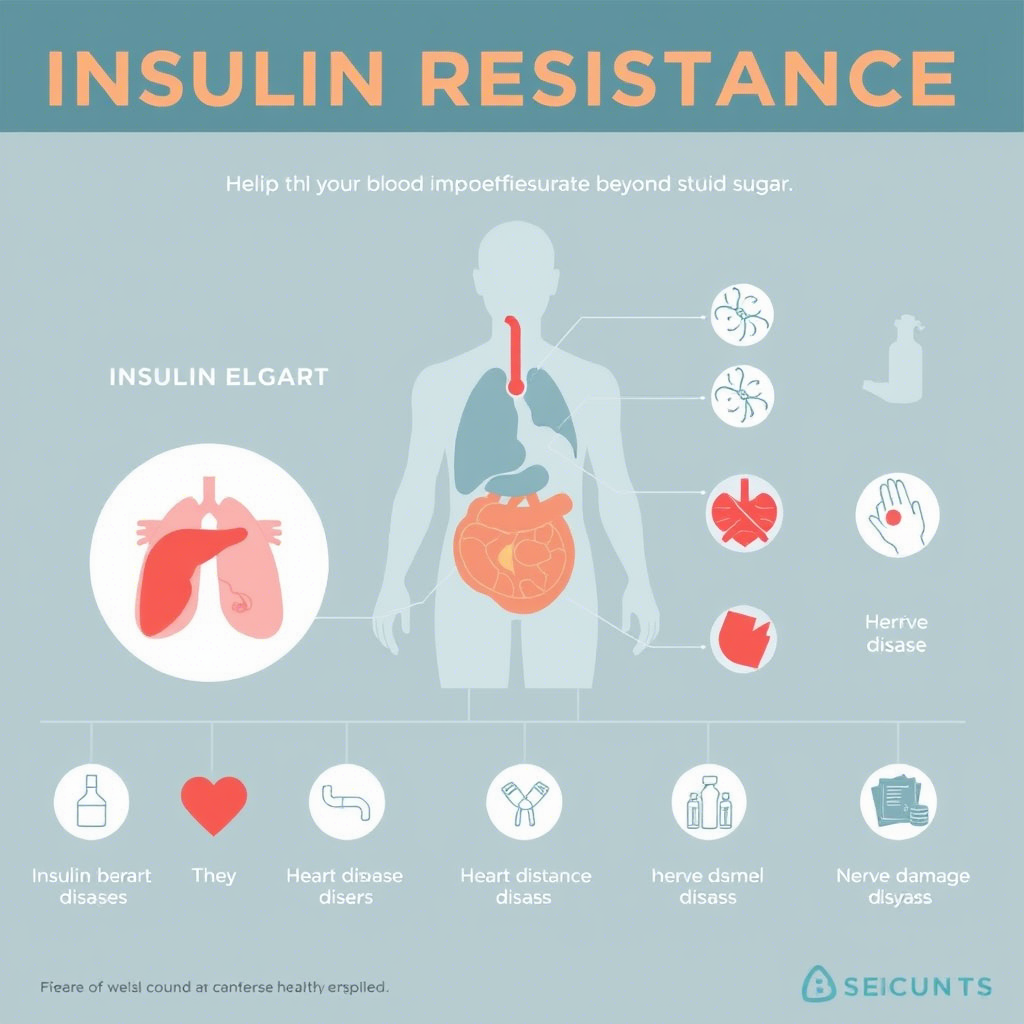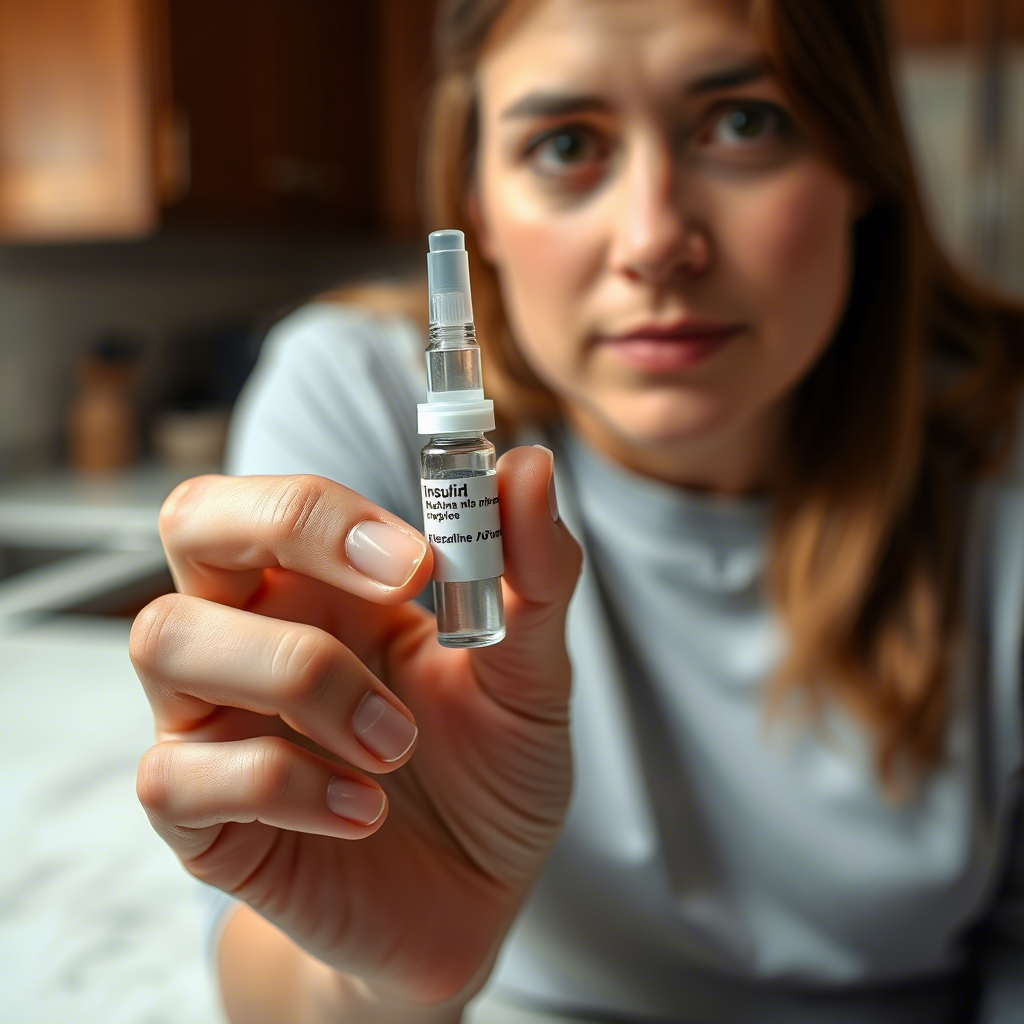Imagine your body as a finely tuned car, and insulin as the key that allows fuel (glucose) to enter its engine (cells). But what if the key starts to stick, forcing the car to pump out more fuel just to keep running? This is insulin resistance—a silent, stealthy condition where your cells stop responding to insulin, leading to elevated blood sugar and a cascade of health risks. Read Also: Fatty Liver
Affecting nearly 1 in 3 adults globally, insulin resistance is a precursor to type 2 diabetes, heart disease, and more. Yet, many live with it unknowingly. This article demystifies insulin resistance, explores its causes, and offers science-backed strategies to reclaim your metabolic health. Let’s dive in.
1. Understanding Insulin Resistance: The Basics
Insulin—The Body’s Glucose Gatekeeper
Insulin, a hormone produced by the pancreas, acts like a key that unlocks cells to let glucose enter for energy. After a meal, blood sugar rises, prompting insulin release. In a healthy system, cells readily absorb glucose, stabilizing blood sugar levels.
Subheading: When the Lock Gets Sticky
Insulin resistance occurs when cells ignore insulin’s “open up” signal. The pancreas compensates by producing more insulin, but over time, this leads to high blood sugar (hyperglycemia) and, eventually, type 2 diabetes.
Subheading: A Spectrum, Not a Switch
Insulin resistance isn’t binary. It develops gradually, often without symptoms, making early detection critical. Think of it as a dimmer switch—small lifestyle changes can brighten (or dim) your metabolic health.
2. Causes and Risk Factors: Why Insulin Resistance Happens
Subheading: Genetics—The Hand You’re Dealt
Family history plays a role. Genes affecting insulin production, fat storage, or inflammation can increase susceptibility. However, lifestyle choices often determine whether these genes are “activated.”
Subheading: Lifestyle Culprits
- Sedentary Habits: Muscle cells are major glucose consumers. Inactivity reduces their demand, leaving excess glucose in the bloodstream.
- Poor Diet: Excess sugar, refined carbs, and saturated fats overload the liver and fat cells, worsening resistance.
- Visceral Fat: Fat around organs (belly fat) releases inflammatory chemicals that disrupt insulin signaling.
Subheading: Medical Conditions Linked to Insulin Resistance
- Polycystic Ovary Syndrome (PCOS): Up to 70% of women with PCOS have insulin resistance.
- Sleep Apnea: Poor sleep disrupts hormones that regulate appetite and glucose metabolism.
- Chronic Stress: High cortisol levels promote fat storage and blood sugar spikes.
3. Symptoms and Diagnosis: Catching the Silent Saboteur
Subheading: Subtle Warning Signs
Early symptoms are easy to miss:
- Fatigue (especially after meals).
- Increased hunger or cravings for carbs.
- Darkened skin patches (acanthosis nigricans) around the neck or armpits.
- Weight gain, particularly around the abdomen.
Subheading: Diagnostic Tools
- Fasting Insulin Test: Measures insulin levels; high readings indicate resistance.
- HOMA-IR Score: Calculates resistance using fasting glucose and insulin.
- Oral Glucose Tolerance Test (OGTT): Tracks blood sugar response after a sugary drink.
Subheading: Who Should Get Tested?
If you have obesity, a family history of diabetes, or conditions like PCOS, ask your doctor about screening.
4. Health Implications: Beyond Blood Sugar
The Diabetes Domino Effect
Unmanaged insulin resistance is the primary driver of type 2 diabetes. Over time, the pancreas can’t keep up with insulin demand, leading to permanent beta-cell damage.
Subheading: Heart Disease Connection
Insulin resistance fuels atherosclerosis (artery hardening) by increasing triglycerides, LDL cholesterol, and blood pressure.
Subheading: Other Risks
- Non-Alcoholic Fatty Liver Disease (NAFLD): Excess glucose converts to liver fat.
- Cognitive Decline: Linked to poor glucose metabolism in the brain.

5. Reversing Insulin Resistance: Your Action Plan
Diet—Your Most Powerful Tool
- Embrace Low-Glycemic Foods: Swap white bread and pasta for quinoa, lentils, and leafy greens.
- Prioritize Protein and Healthy Fats: Fish, nuts, and avocados slow sugar absorption.
- Ditch Sugary Drinks: Opt for water, herbal tea, or black coffee.
Move More, Sit Less
- Aerobic Exercise: 150 minutes/week of brisk walking or cycling improves insulin sensitivity.
- Strength Training: Builds muscle, which acts as a glucose “sponge.”
Sleep and Stress Management
- Aim for 7–9 Hours of Sleep: Poor sleep worsens insulin resistance.
- Practice Mindfulness: Yoga, meditation, or deep breathing lowers cortisol.
Medications and Supplements
- Metformin: Reduces liver glucose production and improves insulin sensitivity.
- Berberine: A natural supplement with metformin-like effects.
- Omega-3s: Fight inflammation linked to resistance.
FAQs: Your Insulin Resistance Questions Answered
Q: Can insulin resistance be reversed?
A: Yes! Diet, exercise, and weight loss can significantly improve sensitivity, often within months.
Q: Are carbs the enemy?
A: No—focus on quality. Choose fiber-rich carbs (veggies, whole grains) over refined ones.
Q: Can skinny people have insulin resistance?
A: Absolutely. “Lean” insulin resistance is common in people with poor diets or genetic risks.
Q: Does intermittent fasting help?
A: For some, yes. Fasting periods can lower insulin levels, but consult a doctor first.
Q: How does alcohol affect it?
A: Moderate consumption may have neutral effects, but excess alcohol worsens liver health and weight gain.
Conclusion
This isn’t a life sentence—it’s a wake-up call to prioritize your metabolic health. By understanding its stealthy nature and adopting proactive habits, you can reset your body’s insulin response. Remember, small changes compound: a daily walk, swapping soda for sparkling water, or adding veggies to your plate can tip the scales in your favor.
Final Thought:
Your body is designed to thrive, not just survive. Treat it with the care it deserves, and it’ll reward you with energy, vitality, and resilience. Start today—one meal, one step, one deep breath at a time.


Pingback: Vitamin D Deficiency - Mental Health Stigma